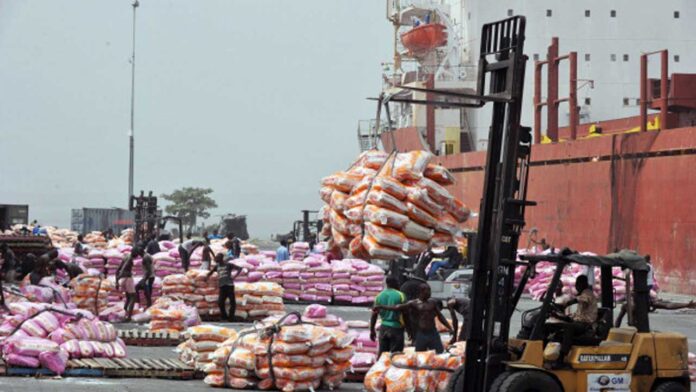Food imports from Russia down as Putin’s aggression hampers trade
By Jeph Ajobaju, Chief Copy Editor
Imports from Russia has plummeted to the lowest depths, according to the latest National Bureau of Statistics (NBS) report which shows Nigeria shipped N1.71 billion Russian goods in the third quarter of the year (Q3 2022).
This is a 92.17 per cent dip from N21.84 billion in Q2 2022 as Nigeria imported mainly fish from Vladimir Putin’s country in Q2 2023 unlike in previous years when it also bought durum wheat.
Russian herring worth N6.27 billion was imported in Q2 2022 and blue whiting (N2.77 billion). Herring valued at N7.21 billion came in during Q2 2022 as well as blue whiting (N13.39 billion) and malt (N1.25 billion).
Nigeria imported N1.19 billion jack and horse mackerel from Russia in Q3 2022 and sulphur (N517.90 million).
__________________________________________________________________
Related articles:
Russia’s war in Ukraine raises bread price in Nigeria
Russia’s war with Ukraine threatens Nigeria’s $2b trade
Dangote seeks Abuja’s food plan amid Russian-Ukrainian war
__________________________________________________________________
Inflationary effect of Russian-Ukrainian war
Total imports from Russia reached N21.84 billion in Q2 2022, a huge increase on N8.98 billion in Q1 2022.
The NBS report does not show imports from Ukraine in Q3 2022.
Akpan Ekpo, a Professor of economics and public policy at the University of Uyo (UNIUYO) warned in March if the conflict between Russia and Ukraine persisted, Nigeria’s imports from the two countries might be affected and stoke inflation, per The PUNCH.
“If Nigeria can’t import wheat anymore or other products that we import from Russia due to sanctions, it is very likely the prices of products made from wheat or with wheat will rise in the medium-to-long term.
“This, of course, will increase inflation and create more hardship for the average Nigerian,” he said.
Ekpo stressed the need to boost domestic wheat production to meet local consumption and export demands, noting Russia was among Nigeria’s top 10 trade partners between Q3 2020 and Q3 2021.













